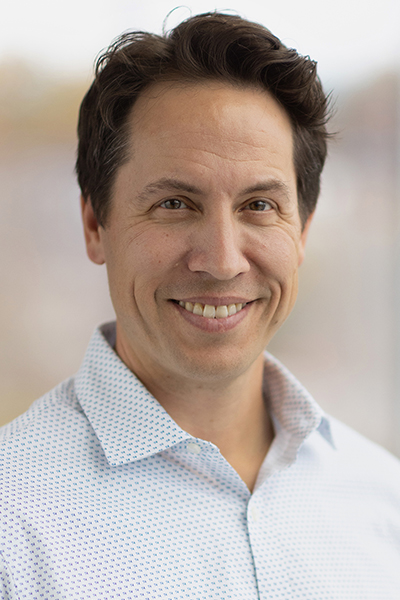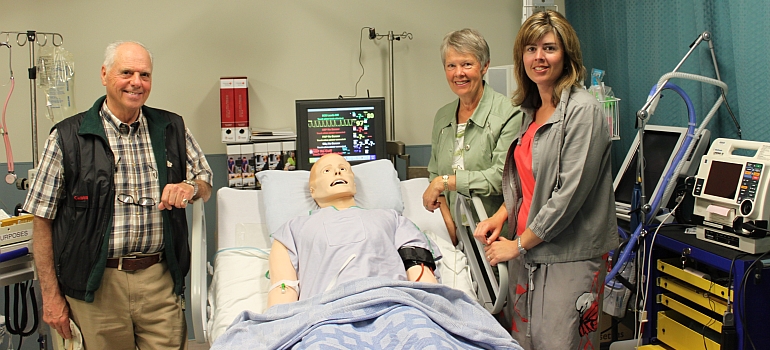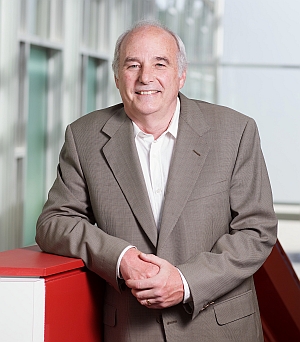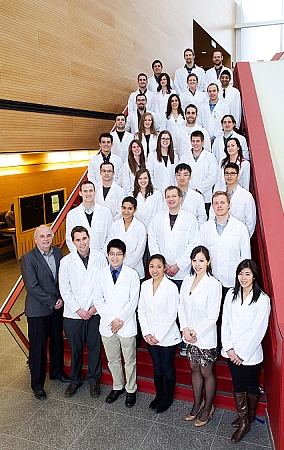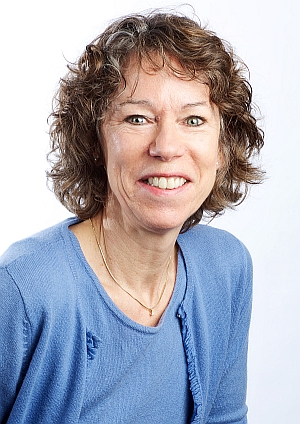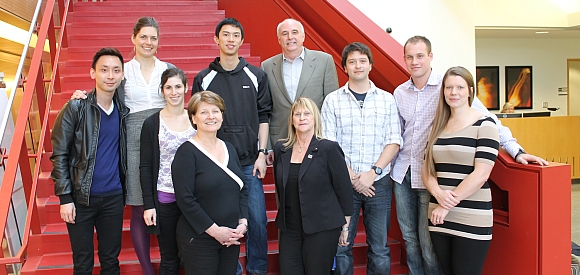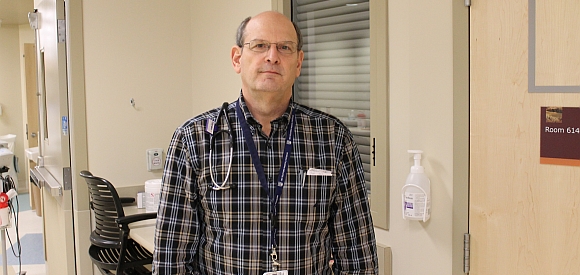More than 700 physicians across the BC Interior are involved with teaching medical student and residents with the UBC Faculty of Medicine. To learn about how to get involved, visit the Faculty Recruitment section of our website (smp.med.ubc.ca).
Dr. Trent Smith, Pediatrician – Kamloops

Dr. Trent Smith
Dr. Trent Smith was involved in teaching at Royal Inland Hospital (RIH) long before the Southern Medical Program (SMP) was even a consideration. For the past 8 years, Dr. Smith has been teaching pediatric residents as part of the UBC pediatrics residency program. Dr. Smith completed his medical degree at the University of Alberta and his pediatric residency with UBC. Lifestyle preferences and RIH’s high level acute nursery were primary draws for him starting his practice in Kamloops 10 years ago.
When plans were announced to include the RIH as a third-year training site for SMP students, it was a natural fit for Dr. Smith to take on the role as the pediatrics rotation leader for the Kamloops rotation. “It’s great that students are having the opportunity to train outside of the Lower Mainland and I am happy to be involved with the program,” says Smith.
RIH will see a steady flow of third-year SMP students starting in the fall of 2013. The hospital is one of the four primary clinical training sites for the program which also offers third-year rotations in Kelowna, Vernon, and Trail. In final preparation for the arrival of students from the SMP’s inaugural class – currently in their second year in Kelowna – four UBC students are completing a year-long pilot of the Kamloops rotation.
Thinking back on his own student experience, “I really appreciated the learning opportunities given to me and feel we owe the effort to the students coming in behind us,” says Smith. The RIH staff and administration have really embraced the program and the students. “Our department is really on board and the students add a different flavour to the work day.”
—————————————————————————————————————————————————
Dr. Joey Podavin, Family Physician – Kelowna
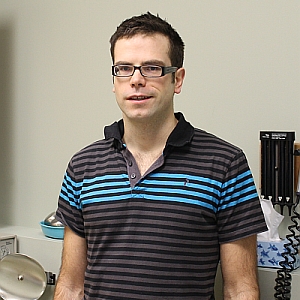
Dr. Joey Podavin
Based on his positive teaching experiences as a resident, Dr. Joey Podavin decided to continue in that role upon entering his family medicine practice. After completing his medical degree from the University of Saskatchewan and residency from McGill, he started practicing on a Cree reserve in the small northern-Quebec community of Chisasibi. For three years, new students and residents would arrive each month to train alongside Dr. Podavin and learn about life and practice in a small, rural community.
When Dr. Podavin and his wife moved to the Kelowna in early 2012, he quickly got involved with the Southern Medical Program as a preceptor for the Family Practice Continuum course. For many physicians like Dr. Podavin, they find the experience rewarding and are excited for the opportunity to incorporate students into their practice. “The course asks the teacher to ensure they have a common approach to medical problems and able to verbalize their thinking process,” says Podavin. “It’s a good way to ensure you are on top of your skills as a physician.”
Medical student spends roughly one half-day per week during their first two years of the program learning in the community alongside family physicians as part of the Family Practice Continuum course. Students are matched on a one-on-one basis with a family physician preceptor as they focus on developing their clinical skills and applying some of the book knowledge learned to date.
After teaching with the program for the past fall term, Dr. Podavin is continuing his role with a student from the SMP’s second cohort that arrived this past January. “Most of my patients are excited to see medical students,” adds Podavin. “It has been really rewarding experience and I am happy to be a part of the program.”
—————————————————————————————————————————————————
Dr. Gary Victor, Internist – Kelowna
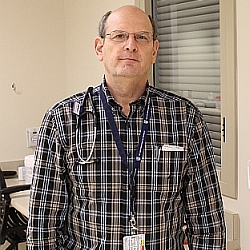
Dr. Gary Victor
Dr. Gary Victor has been teaching medical students and residents for over 20 years, previously at Ottawa General Hospital and now at Kelowna General Hospital (KGH) for the past three years. As the Director of the Medical Teaching Unit (MTU) at KGH, he oversees the teaching and evaluations for countless residents and students completing internal medicine rotations at the hospital.
Dr. Victor has always had a passion for helping future doctors learn medicine on the wards and in the clinics. During his time at Ottawa Hospital, he taught both communication and clinical skills to medical students in addition to serving as the Internal Medicine Residency Program Director. Now at KGH, he manages the MTU and the medicine rotation for Southern Medical Program (SMP) students.
“The key is to maintaining a stimulating environment for all levels of learners,” says Victor. “Sometimes teaching is done better as a group and sometimes on a one-on-one basis. We really try to emphasize that the approach to problem solving can be different, but the goal remains the same – to provide care to the patients in the best way possible.”
The MTU education team usually consists of a second or third year Internal Medicine resident, a first year family medicine resident, and one or two medical students – all of whom are being supervised by an Attending physician(general internist or sub-specialist). Students are given responsibility for 3 to 4 patients and learn how to take a comprehensive history, perform a thorough physical exam, present cases, and develop a management /treatment plan with daily follow-up on their patients. The patient’s length of stay can be a few days, weeks or even longer.
“It is satisfying to see students starting to understand clinical medicine when they are given a differential diagnosis and are able to start putting all of the pieces of the puzzle together,” says Victor. “When the light bulb goes off, it is a very rewarding experience.”
